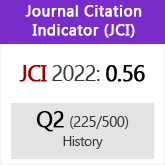Antifascismo de pequeño Estado: el objetivo de Noruega de eliminar el régimen de Franco como consecuencia de la Segunda Guerra Mundial
DOI:
https://doi.org/10.3989/chdj.2018.008Palabras clave:
Política exterior noruega, Universalidad y membresía de Naciones Unidas, Aislamiento de la España de Franco, Membresía de la OTAN, Relaciones diplomáticas, Guerra comercial, Activismo de pequeño Estado, AntifascismoResumen
En los primeros años de la posguerra Noruega fue uno de los países más activos en la campaña en contra de la España de Franco, apoyando la política de apartar a España fuera de las Naciones Unidas y presionando a los miembros de ésta a romper las relaciones diplomáticas con ella. En unos pocos años se comprobó el fracaso de la política del ostracismo, puesto que acabó por fortalecer, más que debilitar, el régimen franquista. A partir de entonces, las relaciones con España fueron templándose poco a poco. Hasta los primeros años cincuenta, la retractación noruega de su posición de 1946 resultó un tanto reacia, y no fue hasta 1949 cuando se convirtió en el último de los estados de Europa occidental en aceptar la normalización de la situación. España contraatacó con presiones económicas y para 1951 Noruega ya había cedido su posición para unirse al restablecimiento general de las relaciones diplomáticas normales, de manera que en 1955 aceptó el paquete de acuerdos que llevó a España a las Naciones Unidas. Este artículo analiza las relaciones internacionales y las luchas políticas domésticas que explican las políticas noruegas, incluyendo el veto al ingreso de España como miembro de la OTAN, que nunca fue levantado.
Descargas
Citas
Benum, Edgeir (1969) Maktsentra og opposisjon [Power centers and opposition]. Universitetsforlaget, Oslo.
Bergh, Trond (1987) Storhetstid (1945-1965). Vol. 5 in History of the Norwegian Labor Movement. Tiden, Oslo.
Botero, Rodrigo (2001) Ambivalent Embrace. America’s Troubled Relationship with Spain from the Revolutionary War to the Cold War. Greenwood Press, Westport. PMCid:PMC2912527
Eriksen, Knut E. (1972) DNA og NATO [The Labor Party and NATO]. Gyldendal, Oslo.
Eriksen, Knut E. and Pharo, Helge Ø. (1997) Kald krig og internasjonalisering 1949-1965 [Cold War and internationalization 1949-1965]. Vol. 5 in History of Norwegian Foreign Relations. Universitetsforlaget, Oslo.
FRUS = Foreign Relations of the United States. (1945), 2; (1946), 5; (1947), 3; (1955-1957), 27.
Fure, Odd B. (1996) Mellomkrigstid 1920-1940 [The interwar years 1920-1940]. Vol. 3. in History of Norwegian Foreign Relations. Universitetsforlaget, Oslo.
Kvam, Ragnar Jr. (1973). DNA mot splittelse. Cappelen, Oslo.
Luard, Evan (1982). A History of the United Nations. Vol. 1. Mac- Millan, London. https://doi.org/10.1007/978-1-349-16757-9
Maurseth, Per (1987) Gjennom kriser til makt. 1920-1935. [Through crises to power. 1920-1935]. Vol. 3. in History of the Norwegian Labor Movement. Tiden, Oslo.
Mordt, Gerd (ed.) (2003) Arne Ordings dagbøker. Bind II [Arne Ording’s diaries. Vol. II]. Universitetsforlaget, Oslo.
Pharo, Helge Ø. (1976). “Bridgebuilding and Reconstruction. Norway faces the Marshall Plan”. Scandinavian Journal of History, I, 1-2: 125-53.
Pharo, Helge Ø. (1989) “Gjenreisning og utenrikspolitikk” [Reconstruction and foreign policy)]. In Historiker og veileder [Historian and guide], eds. Bergh, Trond and Pharo, Helge Ø. Oslo: Tiden.
Pharo, Helge Ø. (2004) “Post-Cold War Historiography in Norway”. In The Cold War-and the Nordic Countries. Historiography at a Crossroads, ed. Olesen, Thorsten B. University of South Denmark Press, Odense.
Pharo, Helge Ø. (2005) “Den norske fredstradisjonen-et forskningsprosjekt” [The Norwegian peace tradition-a research project]. Historisk tidsskrift, 84, 2: 239-55.
Pharo, Helge Ø. (2014) “Gru og glede: Marshallplanen og Keralaprosjektet som merkesteiner i norsk historie” [Dread and Joy. The Marshall Plan and the Kerala Project as landmarks in Norwegian history]. In Politikk i grenseland [Politics in a borderland], eds. Claes, Dag H.; Heidar, Knut and Holst, Cathrine. Universitetsforlaget, Oslo. PMCid:PMC4086031
Pryser, Tore (1987) Klassen og nasjonen. 1935-1946 [Class and nation. 1935-1946]. Vol. 4 in History of the Norwegian Labor Movement. Tiden, Oslo.
Riste, Olav (1965) The Neutral Ally: Norway’s Relations with the Belligerent Powers in the First World War. Oslo: Universitetsforlaget.
Riste, Olav (2005) Norway’s Foreign Relations-A History. Oslo: Universitetsforlaget.
Russel, Ruth B. (1958) A History of the United Nations Charter. The Role of the United States 1940-1945. Brookings Institution, Washington, D.C.
Shipulina, Tatiana (2013) Et universelt FN ? Norge og spørsmålet om medlemskap i FN for Spania, Kina og Korea [A universal United Nations. Norway and the issue of membership in the UN for Spain, China and Korea]. University of Oslo: Unpublished MA thesis in history.
Stenersen, Øivind (1991) “Venstrekreftene i norsk politikk 1945- 65” [The left in Norwegian politics 1945-65]. In Vekst og velstand edited by Bergh, Trond and Pharo, Helge Ø. [Growth and prosperity]. 3rd ed. Universitetsforlaget, Oslo. PMid:1934549
Stortingsmelding [St.meld., parliamentary white paper], 12, (1947).
Stortingstidenede [St.t., parliamentary records] (1945-1946).
Sverdrup, Jakob (1996) Inn i storpolitikken 1940-1949 [Joining great power politics 1940-1949]. Vol. 4. in History of Norwegian Foreign Relations. Universitetsforlaget, Oslo.
Publicado
Cómo citar
Número
Sección
Licencia
Derechos de autor 2018 Consejo Superior de Investigaciones Científicas (CSIC)

Esta obra está bajo una licencia internacional Creative Commons Atribución 4.0.
© CSIC. Los originales publicados en las ediciones impresa y electrónica de esta Revista son propiedad del Consejo Superior de Investigaciones Científicas, siendo necesario citar la procedencia en cualquier reproducción parcial o total.Salvo indicación contraria, todos los contenidos de la edición electrónica se distribuyen bajo una licencia de uso y distribución “Creative Commons Reconocimiento 4.0 Internacional ” (CC BY 4.0). Puede consultar desde aquí la versión informativa y el texto legal de la licencia. Esta circunstancia ha de hacerse constar expresamente de esta forma cuando sea necesario.
No se autoriza el depósito en repositorios, páginas web personales o similares de cualquier otra versión distinta a la publicada por el editor.

















